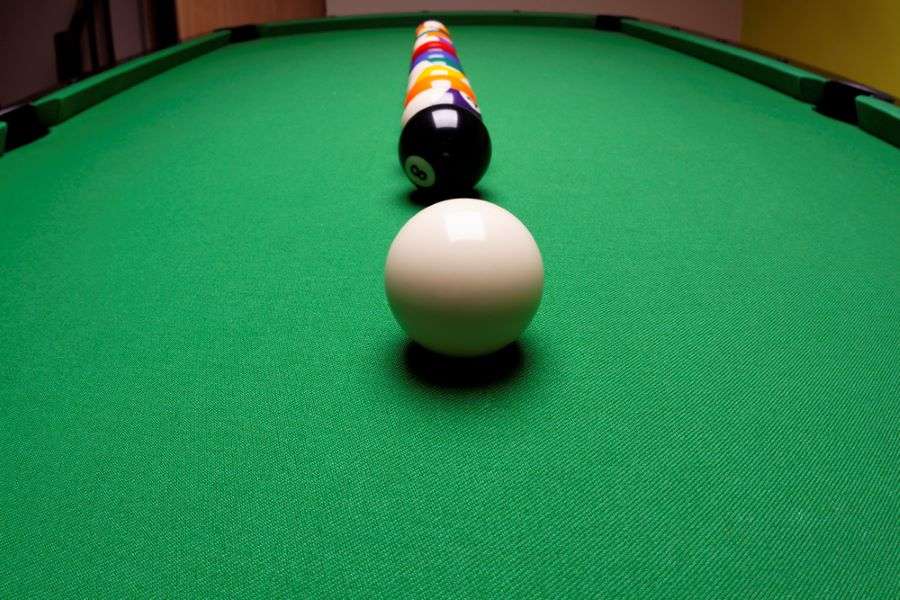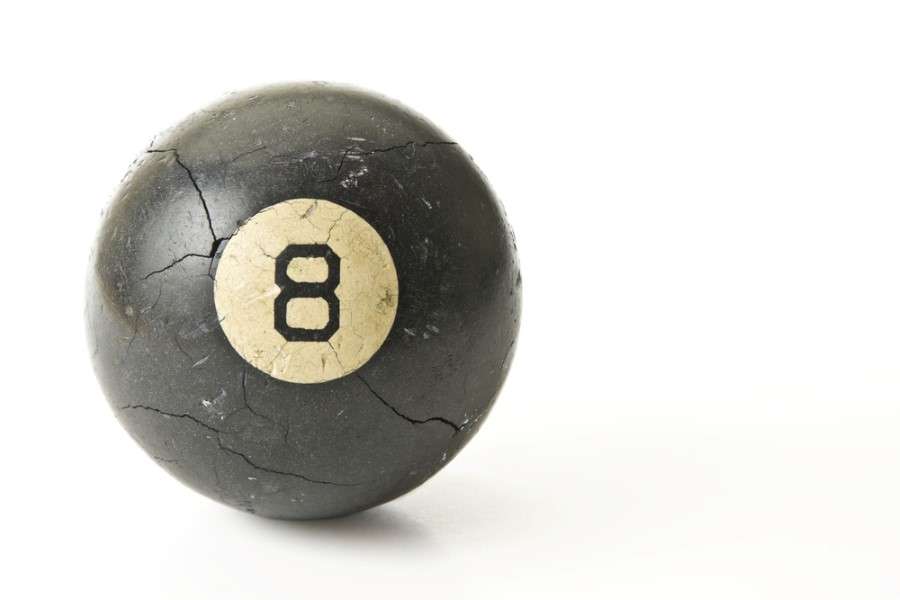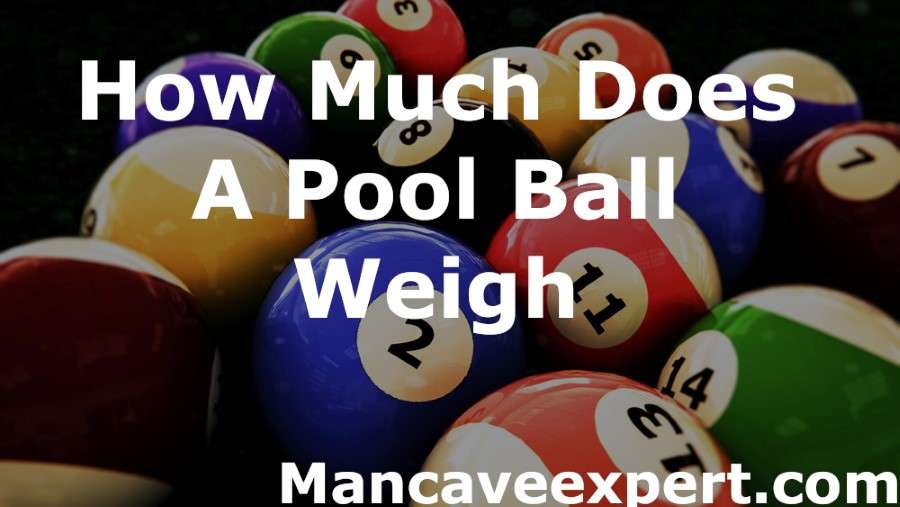Shooting pool cannot be played without pool balls. These pool balls are almost perfectly round orbs that are beautiful and colorful. But as you play and get better it is important to understand the physics of the game and also how much a pool ball weighs.
Most pool balls you play with are going to be regulation pool balls.
From our research from the World Pool Billiard Association the weight of pool balls should be from 5.5 to 6 ounces.
6 ounces is 0.375 lbs. To make more sense of that a pool ball would weigh similar to a hockey puck!
Other specifications the balls must adhere to are the following:
- Must be composed of cast phenolic resin plastic
- Measure 2.25 inches in diameter or 5.715 cm
If you ever happen to need to replace a ball just remember that not all manufacturers will have the same size and weight. This is because each manufacturer will have its own set of standards that they are trying to meet while trying to meet the WPBA standards.
And the cheaper balls will not even try to match those standards.
Is The Cue Ball Larger Than The Other Balls?
Many people think that the cue ball is larger than the rest of the balls in pool. The reason this has been passed on is that coin operated pool tables found in pool halls and bars need a way to separate the balls automatically. So the cue was made slightly larger so that it would return to you when you scratch.
Remember that next time you are playing at a private table. Your play could be a little different than when playing at a bar. And if it isn’t then it’s a great excuse!

What Are Pool Balls Made Out Of
As mentioned above pool balls are made out of phenolic resin plastic. If you have never heard that term do not worry most people haven’t.
But you will be surprised to know many of the things you use today are made out of this material. Knife handles, brake pads, and tires all have some use of phenolic resin plastic.
But this material is great for pool balls because of its strength. It can withstand the constant banging against other balls to avoid any cracking or chipping so that it has a long life on your pool table.

According to the specs by the World Pool Billiard Association, the balls must be composed of phenolic resin. So if you are in the market to buy some and want the best make sure to check the materials.
Other materials that have been used are hardwood and even ivory. But of course, those are probably not the best materials to use for many reasons.
Cheaper balls on the market today are going to be made out of polyresin, acrylic, and polyester which for the average user will be fine.
Pool Ball Manufacturers
Here is a list of some pool ball manufacturers.
- EPCO They have a variety of balls to choose from. Some of the unique ones are very unique.
- Dynasphers This company is relatively new but they have created a great product. Their product claims to have very exact measurements and are tested under controlled conditions.
- Aramith This company is out of Belgium and has a great history of creating products for all of the billiard games.
Note that none of these manufacturers sell directly to the consumer. You will have to contact your local billiards shop or find a store online.
Here are some dealers that sell direct (we have no connection to these dealers):
- Pooltables.com They have showrooms in Los Angeles, Edison – NJ, Atlanta, Portland and Houston
- Ozonebilliards.com They supply many different manufacturers and have a lot of unique options.
Cost Of Pool Balls
A unique set of Aramith can run you up to $600 or more! You can get pool balls as low as $40 but remember that the more you spend the better the ball play will be.
Aramith’s do run down in the $200s as well.
Pool Ball Buying Guide
Here are some things to check prior to buying your first set of pool balls.
- First and foremost, make sure they are for pool! There are many different types of games that have similar looking balls like Snooker, Carom, Yatsudama, Casino, Aramith bumper, and Russian Pyramid. While these games are fun the balls will not be similar to pool so the game play could be a lot different.
- Check the size and weight of the ball. They should weigh 5.5 to 6 ounces and 2.25 inches in diameter. Unique sets may not meet the weight requirements because their uniqueness does not allow for their weight to match the standards. These balls may also not be weighted accurately throughout the ball so this could affect gameplay. For the casual user, it is fine.
- Check the material used. If you want professional balls they must be phenolic resin. Top manufacturers will state this in their specs. Other materials will definitely play fine for the average user but there are setbacks. * See below for those.
- If you want the best use one of the top manufacturers. The top manufacturers will construct their products to very tight tolerances to ensure that their balls have a good roll and are weighted correctly. If you play a lot, the best manufacturers are going to have balls that will play a lot long than others.
- Of course, if you are only playing for fun maybe you don’t need your pool balls to match all the rules and regulations. For most, playing with a cheaper ball is not going to affect how much fun the game is that much!
*Other materials used for pool balls will have issues with durability, they will affect the life of the felt due to higher friction, and may not have measurements as precise and consistent as with phenolic resin.
While pool balls don’t weigh too much, pool tables can weigh a lot! Check out our post about their weight and other concerns!

